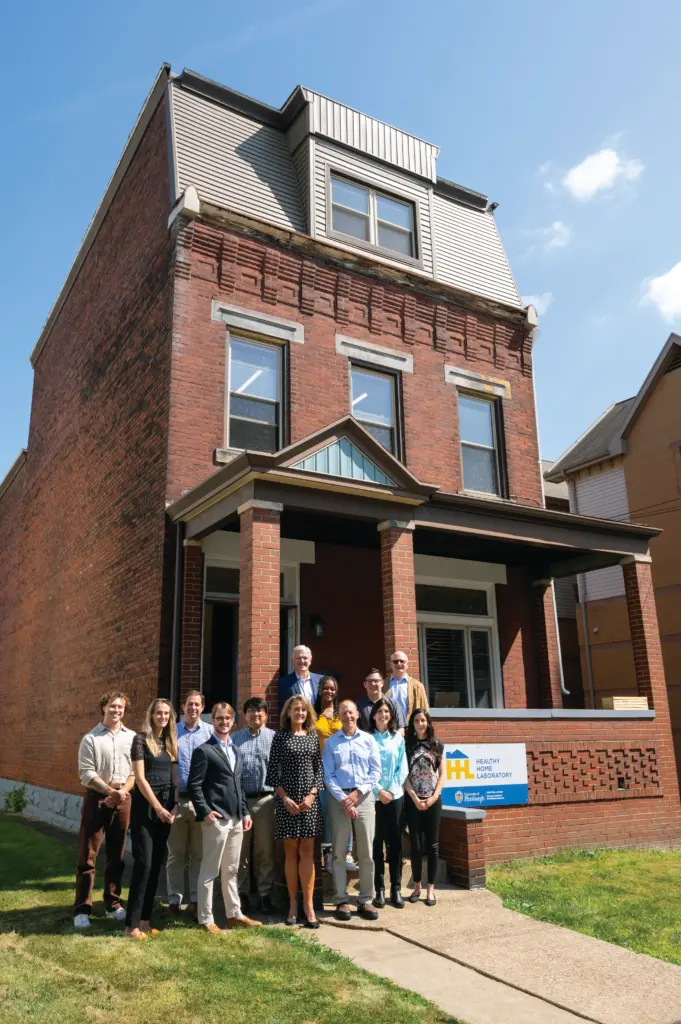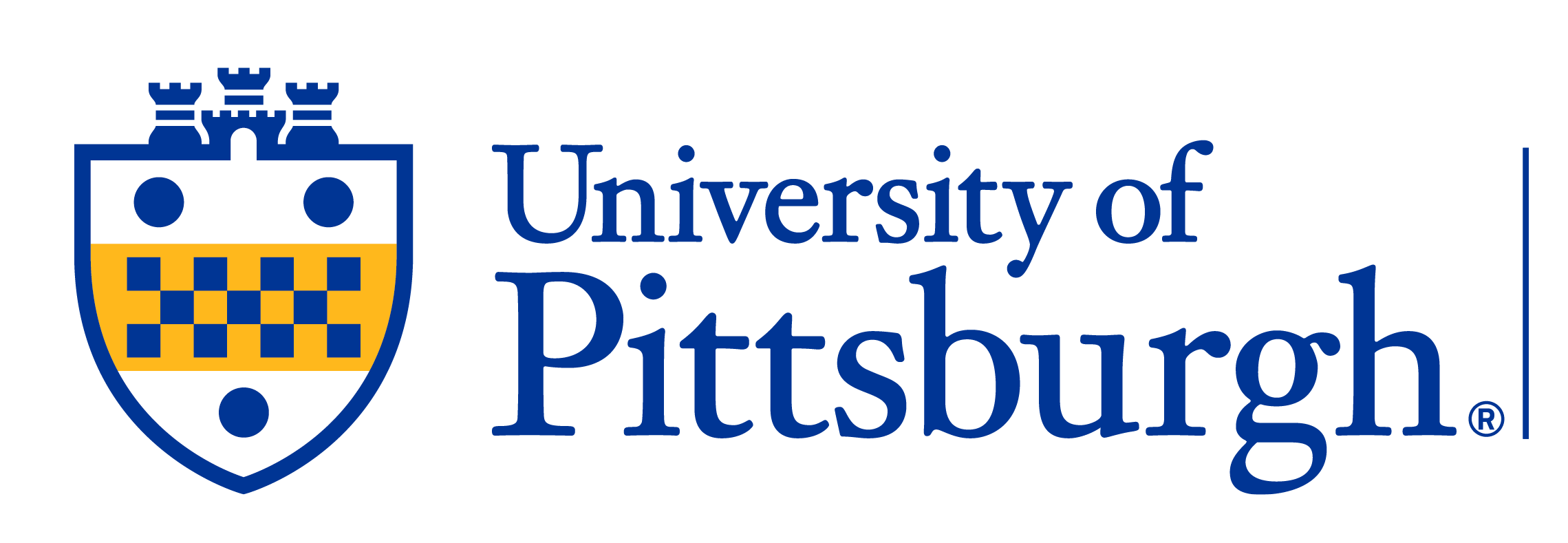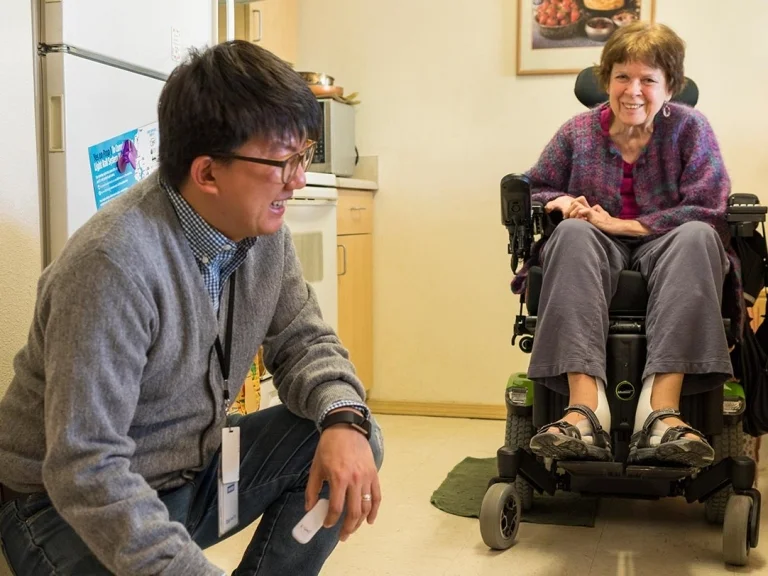The University of Pittsburgh Healthy Home Lab (HHL) has been awarded a $1 million grant from the Department of Housing and Urban Development (HUD) to develop technology-enabled solutions to reduce falls and improve the safety of older adults living in public and rental housing. The project, titled “Moving Beyond Home Modifications: Using Smart Home Technology to Support Safe Living for Older Adults,” was funded by HUD’s Office of Lead Hazard Control and Healthy Homes Technical Studies Grant Program.
The HHL project is led by Yong Choi, assistant professor in the Department of Health Information Management in the School of Health and Rehabilitation Sciences (SHRS), and Dr. Steven Handler, associate professor of Geriatric Medicine in the Pitt School of Medicine and medical director of the HHL. A team of co-investigators from the SHRS Departments of Rehabilitation Science and Technology (RST) and Occupational Therapy (OT) and the School of Public Health, along with community partners Allegheny County Housing Authority (ACHA) and Age-Friendly Greater Pittsburgh (AFGP), round out the exceptional interdisciplinary grant team.

“Falls are the leading cause of injury among older adults, and 80% of those falls occur in the home,” said Dr. Handler. “While home modifications are an effective way to reduce falls risk, emerging smart home safety technology may offer additional cost-effective health and safety benefits. We will test falls prevention technology in the Healthy Home Lab and work with community partners to design and pilot a program that can be implemented in public and rental housing environments across the country.”
The HHL grant team will identify technologies suitable for rental and public housing units and evaluate usability, performance and safety. Selected smart home safety technology will be set up and tested in the HHL and local older adult volunteers in the HHL Research Registry and will provide feedback on the devices. Age Friendly Greater Pittsburgh will help researchers hold community meetings and surveys to seek input from local older adults, and the Allegheny County Housing Authority will conduct interviews with residents of the ACHA Homestead Elderly Community Apartments to ensure “participatory design” of the program. In the final phase of the project, the team will pilot a novel smart home safety technology solution in the apartments of 12 Homestead Apartment residents.

Part of the Healthy Home Lab team including, from left to right: Joey Engelmeier, Jennifer McCartney, Jon Pearlman, Zachary Roy, Yong Choi, Pamela Toto, Dave Brienza, Patricia Karg and Paulina Villacreces. Standing in second row are Everette James, Jemima Ohwobete, Jack Fried and Bill Ammer
“New technology ranging from smart speakers, wearable technology, sensors, medication reminders and automated lighting have the potential to reduce falls and improve the safety of older adults,” said Choi. “This study will be the first to rigorously test all of the emerging smart home safety tech and integrate the most effective and easiest to use technology into a deliverable solution for older adult’s living in public housing. Our goal is to help low-income older adults, including those living in public housing, who are at a disproportionately high risk of falls and preventable injury.”
The grant will address key housing-related health and safety hazards that lead to an estimated 30,000 deaths, 12 million non-fatal injuries and an estimated $222 billion in U.S. medical costs every year. “We are thankful for the opportunity to work with HUD and terrific community partners ACHA and AFGP. This ground-breaking project aligns perfectly with the mission of the HHL to translate sound research into practice to help older adults successfully age-in-place,” said Pamela Toto, director of Pitt’s Healthy Home Lab Laboratory and a professor in the SHRS Department of Occupational Therapy.
—–
About the Healthy Home Lab:
Formerly a multigenerational family home originally built in 1860, the HHL is now a living laboratory in the Oakland neighborhood where researchers across Pitt are designing and testing real-world, evidence-based solutions that will support community living among aging adults, people with disabilities and other vulnerable populations. The HHL brings together health care and technology experts from Pitt’s Health Policy Institute, the schools of Health and Rehabilitation Sciences, Public Health, Engineering, Nursing and Medicine, as well as local community organizations.
Media contact: Chuck Finder
C: 412-996-5852
E: cfinder@pitt.edu
Published on April 10, 2024


